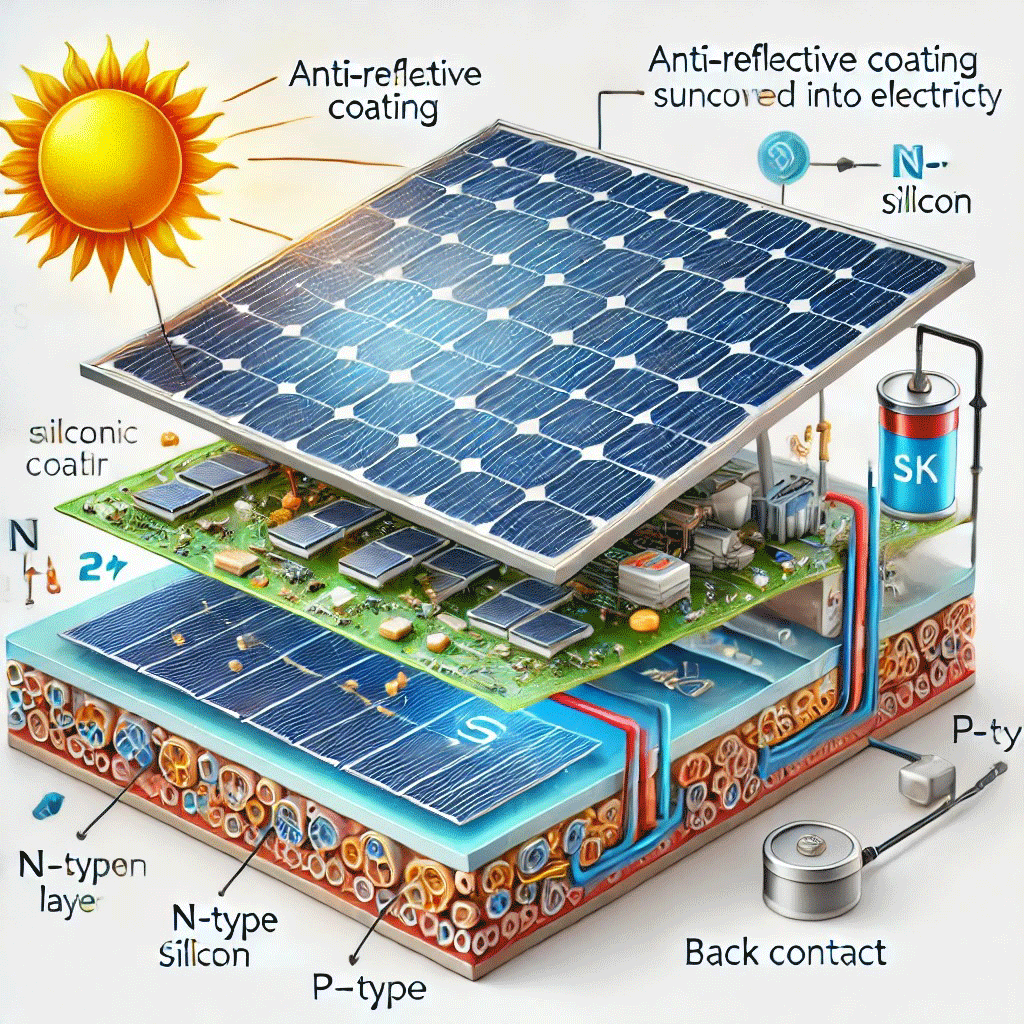Simply Solar Illinois: Green Solar Solutions to Energize Your Home
Simply Solar Illinois: Green Solar Solutions to Energize Your Home
Blog Article
How Solar Power Can Aid You Save Cash and Decrease Your Carbon Impact
The assimilation of solar energy into your power profile presents an engaging chance for both economic cost savings and environmental stewardship. By using the sun's energy, homeowners can considerably minimize their month-to-month utility costs while likewise securing against the changability of future power costs. Moreover, the transition to solar adds to a significant decline in carbon discharges, straightening individual finance with wider environmental goals. As different federal government motivations appear, the inquiry occurs: how can one efficiently navigate the initial financial investments and continuous benefits of solar innovation to maximize both economic and environmental gains?
Comprehending Solar Energy Cost Savings
While the shift to solar power typically involves a preliminary investment, comprehending solar power cost savings is critical for property owners and organizations alike. Solar energy systems can dramatically lower power costs by harnessing the sunlight's energy, equating right into substantial long-term monetary benefits.
Additionally, solar power systems may qualify for numerous economic incentives, consisting of tax credit reports and rebates, better boosting their cost-effectiveness. The accessibility of internet metering allows users to market excess energy back to the grid, creating an additional earnings stream. These variables add to the overall savings connected with solar energy.

In addition to direct financial savings, solar power provides the added benefit of enhancing residential or commercial property value. Homes geared up with solar panels are usually much more attractive to customers, as they guarantee lower energy prices - Simply Solar Illinois. Understanding these elements is crucial for anybody thinking about solar power, as it highlights not simply the potential monetary gains, however likewise the broader ecological and economic benefits of taking on eco-friendly energy options
Initial Costs vs. Long-Term Advantages
When reviewing solar energy, it is essential to weigh the first expenses versus the long-lasting advantages. The in advance investment for solar panels, setup, and related devices can be substantial, usually ranging from $15,000 to $30,000, depending upon the system size and home power needs. This preliminary expenditure may discourage some home owners; nevertheless, it is essential to think about the possible cost savings in time.
Once mounted, solar energy systems can substantially reduce or also remove regular monthly electricity expenses, leading to significant long-lasting economic advantages. Research studies show that home owners can conserve anywhere from $10,000 to $30,000 over the life expectancy of their planetary system, commonly 25 years. Furthermore, lots of states offer incentives, tax obligation credit histories, and discounts that can counter first expenses, making solar a lot more obtainable.

Reducing Your Carbon Impact
Minimizing your carbon footprint is an essential consideration in today's ecologically aware culture, and embracing solar energy is just one of the most effective strategies to achieve this goal. Solar energy is a tidy, eco-friendly resource that dramatically decreases reliance on fossil gas, which are significant factors to greenhouse gas discharges.

Furthermore, the extensive fostering of solar innovation urges the growth of environment-friendly tasks and sustains advancements in energy storage and performance. The more individuals and organizations purchase solar power, the better the cumulative reduction in carbon emissions, fostering a cleaner atmosphere for future generations.
Government Incentives and Discounts
Embracing solar energy not just profits the atmosphere yet can likewise lead to significant financial cost savings, particularly with the schedule of federal government incentives and rebates. Various government, state, and local programs are designed to motivate property owners and businesses to purchase solar energy Our site systems, making the transition a more lot more economical.
Among one of the most famous motivations is the Federal Financial Investment Tax Obligation Credit Report (ITC), which allows planetary system owners to deduct a significant portion of the installation costs from their federal tax obligations. This reward has actually been pivotal in lowering the in advance expenses connected with solar energy systems. Furthermore, several states offer their very own tax obligation credit ratings, gives, and discounts that can further improve financial savings.
Moreover, some city governments supply property tax obligation exceptions for solar installments, making certain that property owners do not encounter increased real estate tax as an outcome of their sustainable energy investments. Energy companies may additionally supply incentives, including internet metering and feed-in tolls, which enable solar power customers to sell excess power back to the grid.
Choosing the Right Solar System
Selecting the appropriate solar system is vital for taking full advantage of power effectiveness and financial advantages. The choice rests look what i found on a number of variables, consisting of power requirements, spending plan, and offered area. Homeowners need to begin by examining their electrical power usage to identify the system dimension required for ideal efficiency.
Next, take into consideration the different kinds of solar modern technologies available. Simply Solar Illinois. Photovoltaic (PV) panels are one of the most usual, transforming sunshine directly right into electricity, while solar thermal systems focus on home heating water. Each kind has unique benefits relying on private demands
Budget factors to consider are likewise extremely important. First installment prices can differ significantly, so it is very important to compare quotes from numerous companies and explore financing choices. Federal government rewards and discounts can further lower the economic problem, making solar systems more easily accessible.
Verdict
In recap, solar power presents a viable remedy for attaining significant cost savings while concurrently minimizing carbon discharges. The first investment, though substantial, returns considerable lasting financial advantages, with prospective cost savings varying from $10,000 to $30,000 over 25 years. The ecological benefits of solar power contribute to sustainable practices crucial for combating environment adjustment. Federal government motivations improve the feasibility of solar technology fostering, motivating a shift in the direction of a cleaner, more economically reliable power source.
Report this page